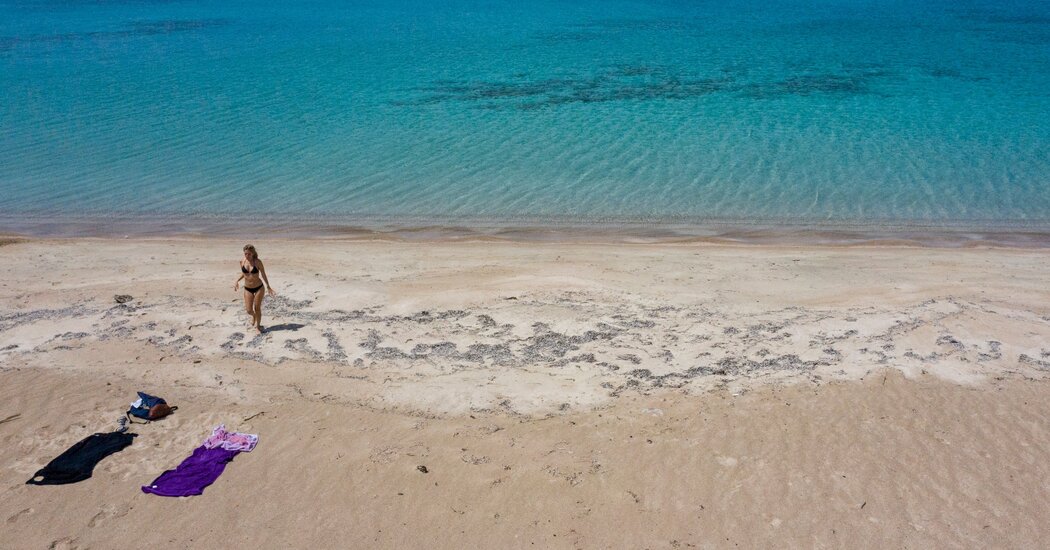The Greek government on Friday published a list of 198 “untrodden beaches” that it said are now off limits to bars, restaurants and large public gatherings in its latest attempt to contain development and address the backlash to the throngs of tourists that descend on the country’s coastlines each year.
The move comes amid growing frustration among residents of Greek islands and parts of the coastal mainland that are popular with foreign visitors. Protests ballooned into a nationwide “beach towel movement” last summer as disgruntled locals complained that they were being pushed off their own beaches by businesses seeking to take advantage of a tourist boom that brought more than 32 million foreign visitors to Greece last year.
On the country’s Cycladic islands, local residents joined forces with the authorities to push back against a wave of construction.
Greece’s conservative government has pledged to crack down on the development, and on seaside businesses that violate regulations. In February it passed a law aimed at regulating the use of the country’s coastline, imposing penalties of up to 60,000 euros for businesses occupying more than 50 percent of Greek beaches with umbrellas and sun beds.
Critics said the law did not go far enough to curb the problem, with some claiming that the government was perpetuating the issue by not tackling illegal land use more comprehensively.
The list of “untrodden beaches,” unveiled in a joint agreement between Greece’s finance and environment and energy ministers, is part of a broader effort to restore balance, the government said. “The main goal is to combine environmental protection with sustainable development,” Kostis Hatzidakis, the economy finance minister, said on Friday.
“The environment is a valuable component of the Greek tourist product,” he said.
Under the new initiative, the government was putting public assets “under a strict framework of rules, penalties and obligations,” Mr. Hatzidakis said. Inspections and transparency would be increased, as would “the enforcement of the law,” he added.
The beaches on the list are in areas included in the European Union’s Natura program, a network of vulnerable habitats across Europe that are protected under European law. Among the beaches listed on Friday are spots on popular islands such as Milos, Naxos, Lesbos, Samothrace and in the southern Peloponnese peninsula.
The islands were selected based on the advice of the country’s…
Click Here to Read the Full Original Article at NYT > Travel…
